What’s happening in Sri Lanka?
President says he will resign after the storming of his official residence by protesters
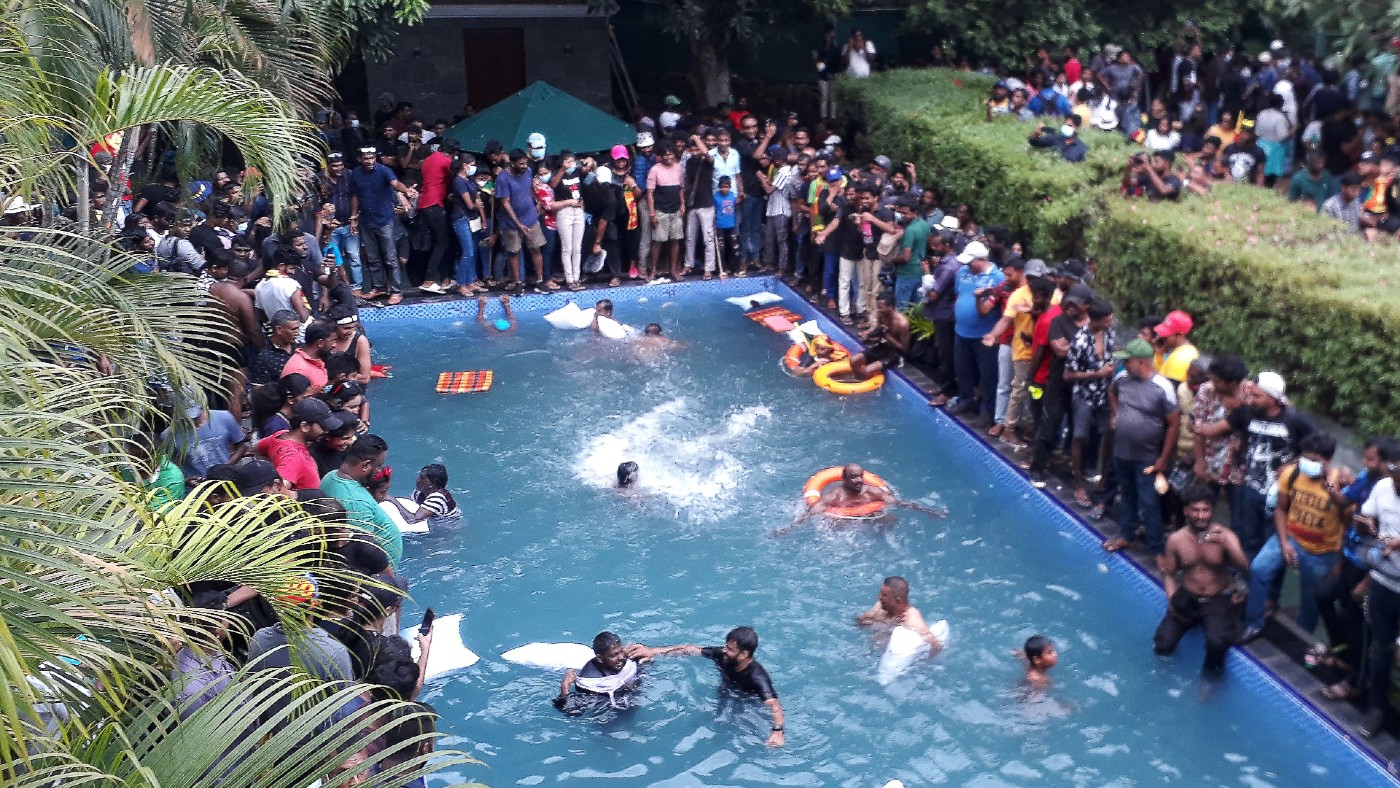
A free daily email with the biggest news stories of the day – and the best features from TheWeek.com
You are now subscribed
Your newsletter sign-up was successful
Sri Lanka’s president Gotabaya Rajapaksa has confirmed that he will resign, probably on Wednesday, following months of political turmoil and the country’s worst economic crisis on record.
A statement from the office of prime minister Ranil Wickremesinghe said Rajapaksa “will be resigning as previously announced”. But he is yet to address the country or submit a resignation letter to the speaker – a necessary step for a president’s resignation under the country’s constitution.
Rajapaksa has been in hiding since Friday, the day before his official residence in Colombo was stormed by thousands of anti-government protesters. “As people wandered from room to room, everyone wanted to capture the moment by taking selfies, in front of teakwood desks and paintings, and in living room areas,” reported the BBC’s Anbarasan Ethirajan from the capital.
The Week
Escape your echo chamber. Get the facts behind the news, plus analysis from multiple perspectives.

Sign up for The Week's Free Newsletters
From our morning news briefing to a weekly Good News Newsletter, get the best of The Week delivered directly to your inbox.
From our morning news briefing to a weekly Good News Newsletter, get the best of The Week delivered directly to your inbox.
Footage showed protesters taking a dip in the president’s swimming pool, rifling through a chest of drawers and milling around on the manicured lawns outside the mansion, while a group of young men reportedly “lounged” on a four-poster bed.
The president hasn’t been seen in public for four days now, with BBC sources believing him to be on a navy vessel in Sri Lankan waters. Wickremesinghe, whose home was set on fire by protesters on Saturday, has also announced plans to step down as PM.
The economic crisis
Saturday’s palace storming was “the culmination of months of mainly peaceful protests in Sri Lanka at the soaring cost of living and shortages of essentials”, said the BBC.
For months now, food, fuel and medicines have been scarce on the South Asian island of 22 million people. The government has struggled to find enough US currency to pay for essential imports, with Rajapaksa criticised for being slow to seek a bailout from the International Monetary Fund (IMF).
A free daily email with the biggest news stories of the day – and the best features from TheWeek.com
In May, Sri Lanka defaulted on its debt for the first time in its history, which the central bank’s governor described as a “pre-emptive default”. Defaulting can “damage a country’s reputation with investors, making it harder for it to borrow the money it needs on international markets, which can further harm confidence in its currency and economy”, explained the BBC’s business reporter Peter Hoskins at the time.
The economic crisis has been exacerbated by the war in Ukraine, which has pushed up food and energy prices, and by the Covid pandemic, which has badly hit a nation highly reliant on tourism. For months now, Sri Lankans have struggled to access food, cooking oil, petrol and medicine, as well as other essentials.
Political upheaval
In April, all 26 members of Sri Lanka’s cabinet resigned, except for Rajapaksa and his elder brother Mahinda, who was PM at the time. As the brothers are regarded as being to blame for the country’s dire economic situation, this caused widespread anger across the country, with the journalist Ranga Jayasuriya describing the news as a “sick joke”.
The Rajapaksa family is Sri Lanka’s most powerful political dynasty and six members of the family have been “accused of corruption, economic mismanagement and bankrupting the country” while holding senior political posts, reported The Guardian.
What next?
Leaders from Sri Lanka’s main opposition parties met on Sunday with the aim of forming a new unity government, which is expected to last six to eight months.
Sri Lanka’s parliamentary speaker told the BBC World Service’s Newshour programme that this new cross-party coalition government “would need to be formed within a week of the president officially stepping down”.
But even though the president has announced his resignation according to a statement from the PM, he is yet to do it formally. Until then “it is going to be a long, drawn-out battle”, said the BBC’s Ethirajan.
And after interviewing several of the protesters at Rajapaksa’s home over the weekend, Sky News correspondent Nicole Johnston concluded that many “don’t believe [in the president’s resignation] and won’t believe it until they see it in action”.
“Until that happens they’re going to continue to occupy the president’s house as well as a number of key buildings around the city,” she added.
Kate Samuelson is The Week's former newsletter editor. She was also a regular guest on award-winning podcast The Week Unwrapped. Kate's career as a journalist began on the MailOnline graduate training scheme, which involved stints as a reporter at the South West News Service's office in Cambridge and the Liverpool Echo. She moved from MailOnline to Time magazine's satellite office in London, where she covered current affairs and culture for both the print mag and website. Before joining The Week, Kate worked at ActionAid UK, where she led the planning and delivery of all content gathering trips, from Bangladesh to Brazil. She is passionate about women's rights and using her skills as a journalist to highlight underrepresented communities. Alongside her staff roles, Kate has written for various magazines and newspapers including Stylist, Metro.co.uk, The Guardian and the i news site. She is also the founder and editor of Cheapskate London, an award-winning weekly newsletter that curates the best free events with the aim of making the capital more accessible.
-
 The Gallivant: style and charm steps from Camber Sands
The Gallivant: style and charm steps from Camber SandsThe Week Recommends Nestled behind the dunes, this luxury hotel is a great place to hunker down and get cosy
-
 The President’s Cake: ‘sweet tragedy’ about a little girl on a baking mission in Iraq
The President’s Cake: ‘sweet tragedy’ about a little girl on a baking mission in IraqThe Week Recommends Charming debut from Hasan Hadi is filled with ‘vivid characters’
-
 Kia EV4: a ‘terrifically comfy’ electric car
Kia EV4: a ‘terrifically comfy’ electric carThe Week Recommends The family-friendly vehicle has ‘plush seats’ and generous space
-
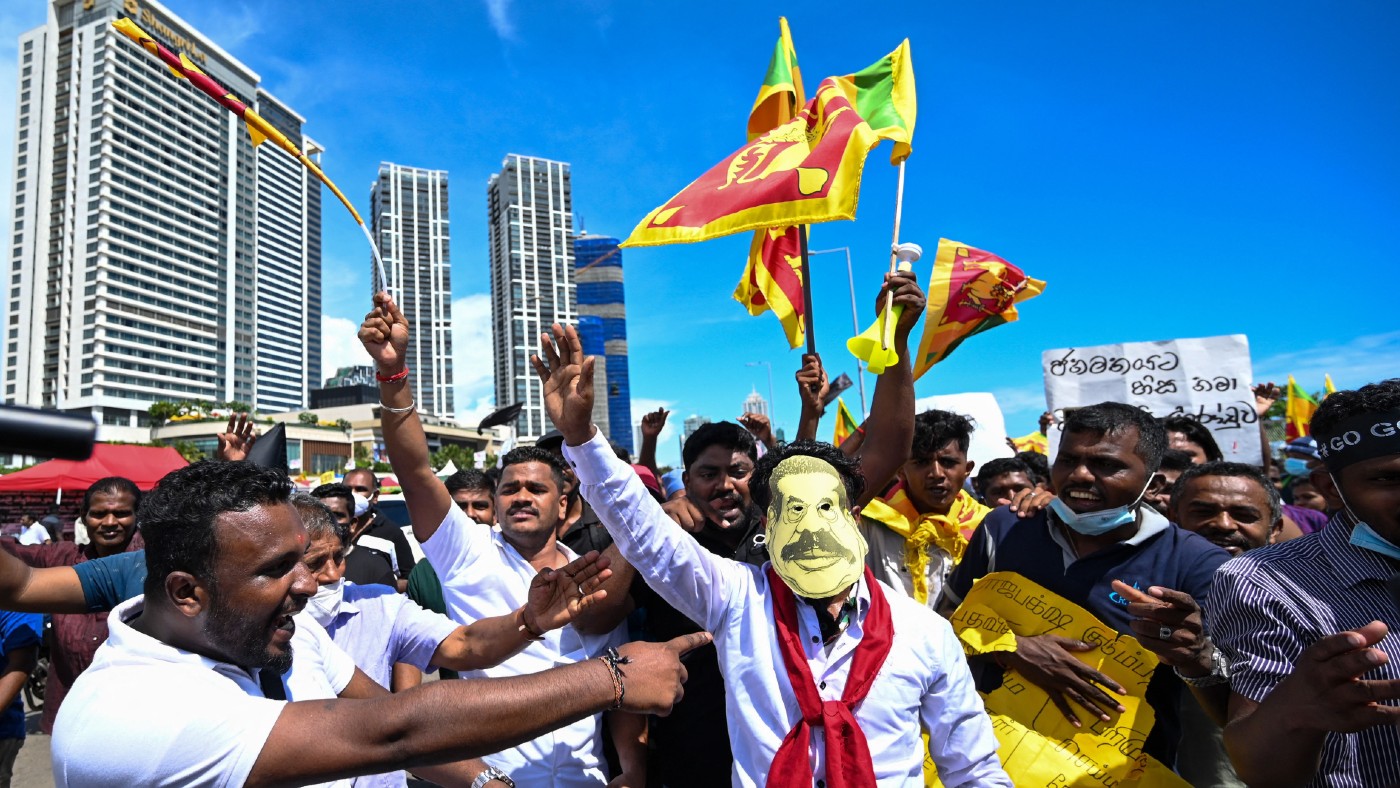 ‘Pushed towards anarchy’: why Sri Lanka is a nation on the brink
‘Pushed towards anarchy’: why Sri Lanka is a nation on the brinkfeature The country is only a few more ‘bad decisions’ away from disaster
-
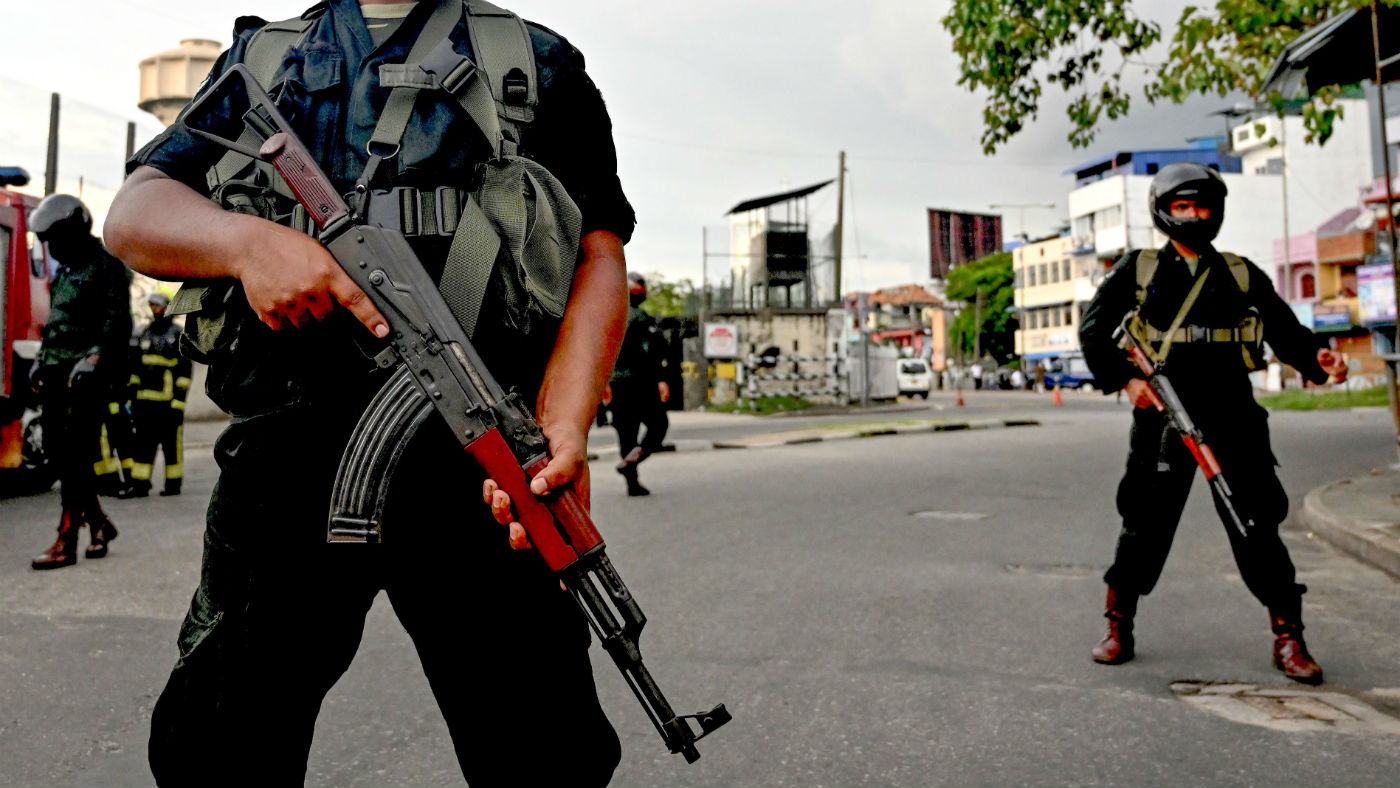 The Week Unwrapped: Sri Lanka, second homes and Siri
The Week Unwrapped: Sri Lanka, second homes and Siripodcast Is Sri Lanka’s latest crisis a warning for the rest of the world? Are second-home owners facing a revolt in Cornwall? And why do most digital assistants have women’s voices?
-
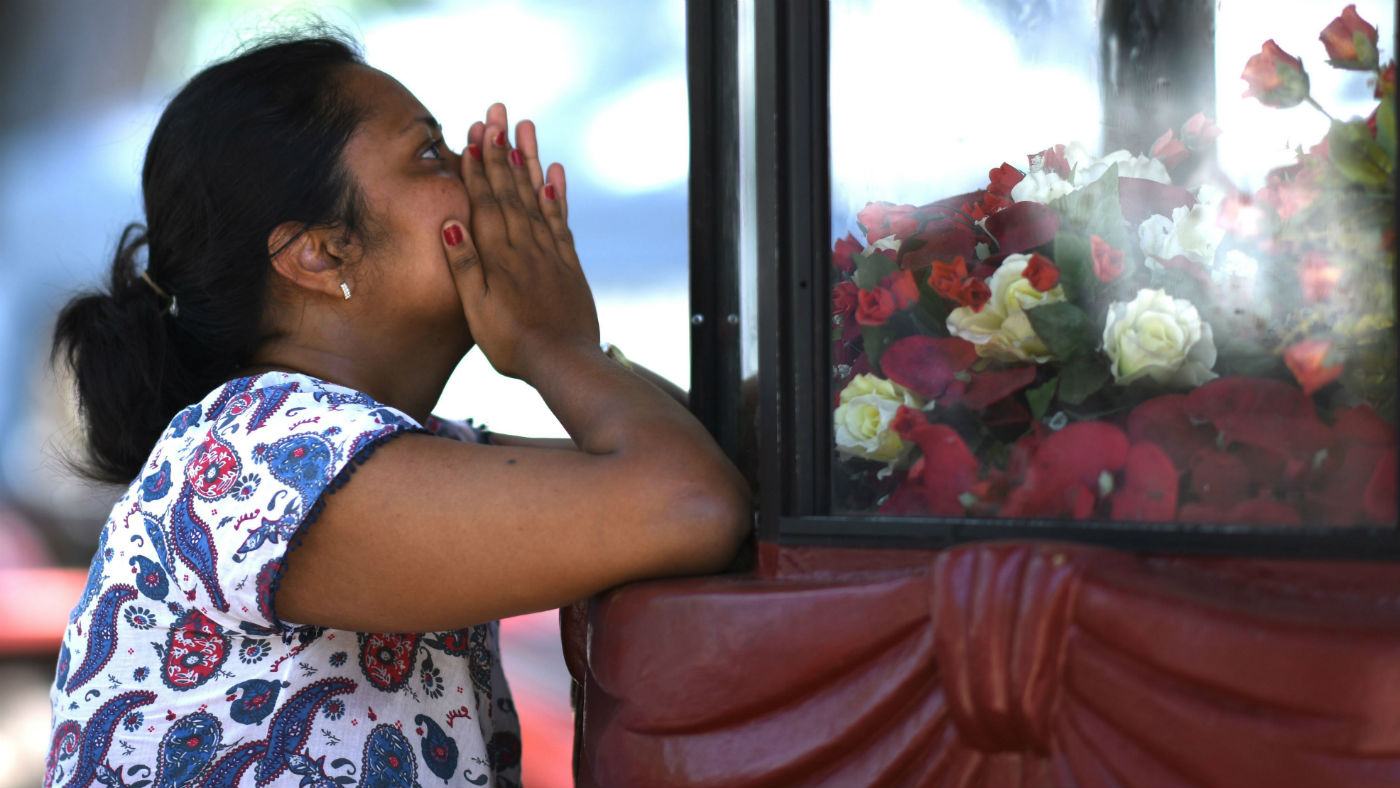 Today’s front pages: Sri Lanka’s tragedy
Today’s front pages: Sri Lanka’s tragedyIn Depth A round up of the headlines from UK newspapers on 23 April
-
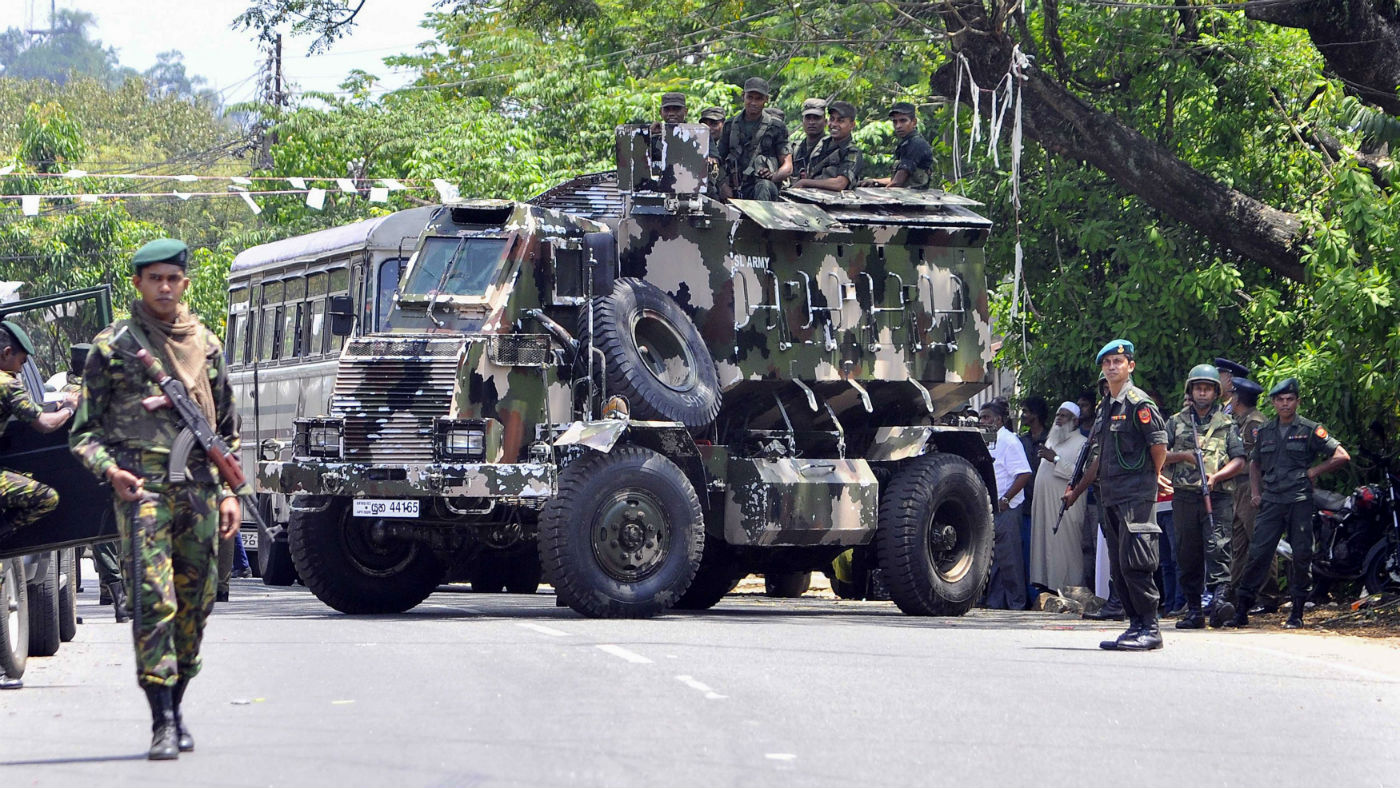 Sri Lanka declares state of emergency
Sri Lanka declares state of emergencySpeed Read Tensions between Sinhalese Buddhists and Muslims erupt into biggest unrest since civil war
-
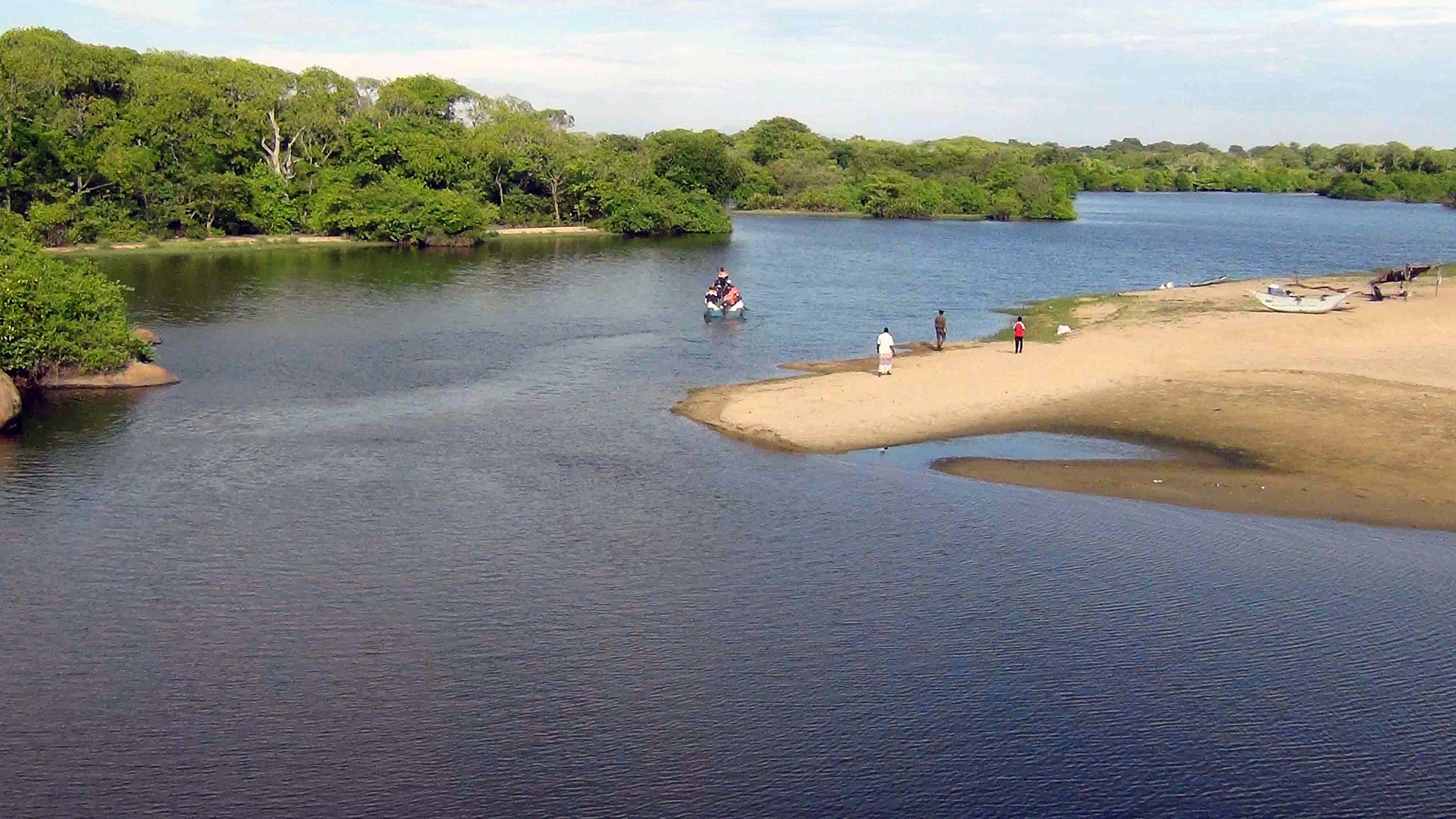 Financial Times journalist killed by crocodile in Sri Lanka
Financial Times journalist killed by crocodile in Sri LankaSpeed Read ‘Accomplished’ reporter Paul McClean, 24, dragged into water while washing his hands
-
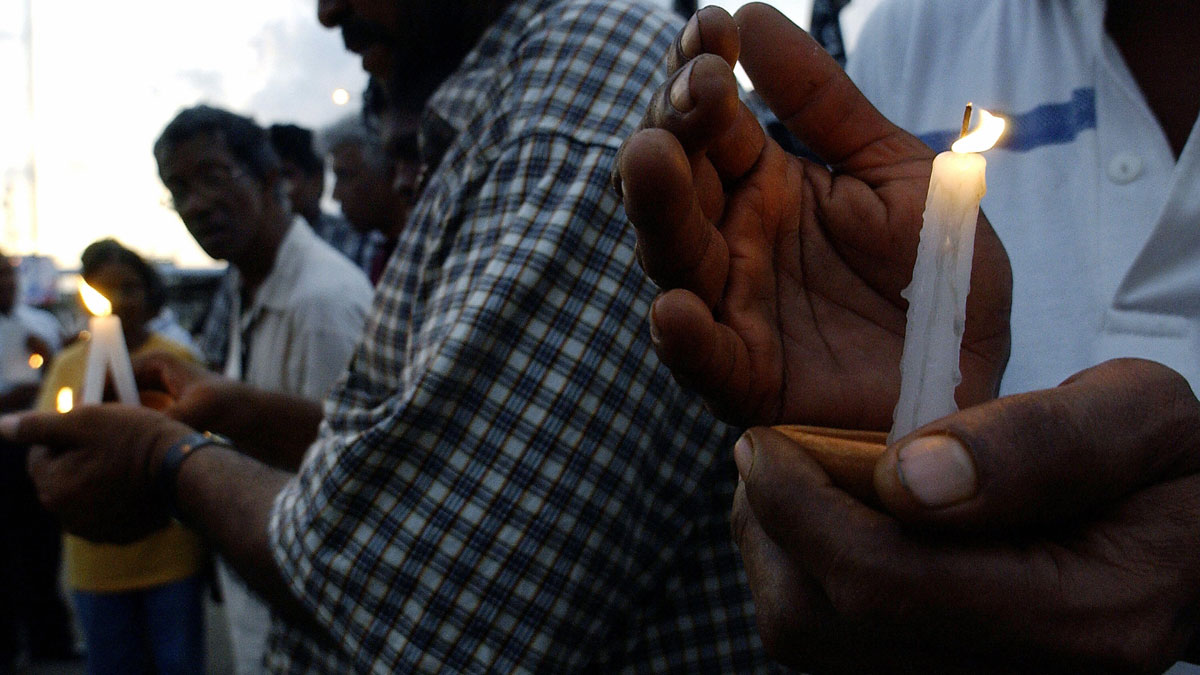 Black July anniversary: the legacy of the Tamil massacre in Sri Lanka
Black July anniversary: the legacy of the Tamil massacre in Sri LankaIn Depth The killings catapulted the country in civil war, but the government has yet to face up to its violent past